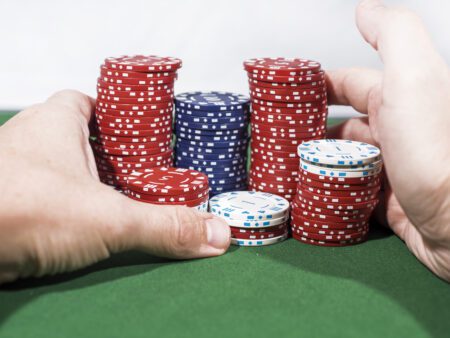Tear down the myth-walls of roulette with us! Learn about common misconceptions and optimize your gameplay for better wins. Knowledge can change your luck!
Busting Roulette Myths for Better Gameplay
There I was, my heart pounding as I watched the roulette wheel spin – black? red? black? My friend leaned over, whispering, “Always bet on black. Everyone knows that!” An interesting thought, was it not?
But let me ask you this, have you ever questioned the common beliefs associated with roulette gameplay? How many of these myths are we willing to bet our hard-earned money on? Did you know, for instance, that there’s no statistical basis to the myth that red or black is more likely to come up in a roulette game? Surprised? Let’s navigate these murky waters together.
Today, we’re dispelling the myths shrouding the enigmatic mistress that is roulette. From anecdotal predictions to misguided strategies, we’re here to crack open these prolonged fallacies. Because whether you’re a seasoned player or a novice stepping into the glitz of online casinos, knowledge is key to a fulfilling gaming experience.
1. The Illusory Patterns
The human mind is wired to see patterns: constellations in patches of stars, shapes in the passing clouds, and of course, imagined series in the seemingly random outcomes of a roulette game. ‘The ball landed on red thrice already, it’s bound to be black next time!’ Sounds familiar? Well, buckle up as we dissect this fabrication next.
The primary thing to understand when you step forward to a casino roulette – either digital or physical – is that it works on sheer randomness. Each spin is an independent event with equal chances for all outcomes. This simply means, irrespective of the ‘streak’, the odds of landing a red or black remain the same. A streak doesn’t guarantee the illusion of pattern falling into place – it’s just that, an illusion!
2. Betting Systems: A Foolproof Road to Riches?
Ever caught wind of seemingly infallible betting systems that guarantee a net gain in the long run? Classic examples like the Martingale or the Fibonacci promise increasing bets after losses, convincing players they’ll recover all past losses on a win. Oh, if only it were that simple.
In reality, mathematical systems look great on paper but falter in practical play. Why, you ask? The key lies in understanding the ‘house edge’ – a fundamental concept in gambling which ensures that over time, the house always has a small advantage. We’ll delve into this intriguing concept shortly.
3. House Edge: The Unseen Overseer
No betting system can alter the house edge because it’s the built-in profit generated by every game. In Roulette, the house edge is created by the green zero pocket. The payoffs in Roulette are set as if there were only 36 numbers, but the addition of the 0 and 00 greatly increase the house’s edge. The significance of this isn’t apparent in a single bet, but over a series of bets, the house edge takes its toll.
As such, betting systems promising riches are based more on hope than anything statistically sound. While they might present short-term winning streaks, long-term play will always give the house the upper hand.
Play Smart, Not Hard
Understanding roulette is about acknowledging the game for what it is, letting go of fallacies, and playing responsibly. Extravagant claims and popular myths might add to the allure of the game, but informed and rational gameplay can add substantial value to your casino experience.
So, will you spin your wheel of fortune, armed with a new arsenal of knowledge and skeptical questioning? Remember, what matters most is the thrill of the game, not necessarily the outcome.










